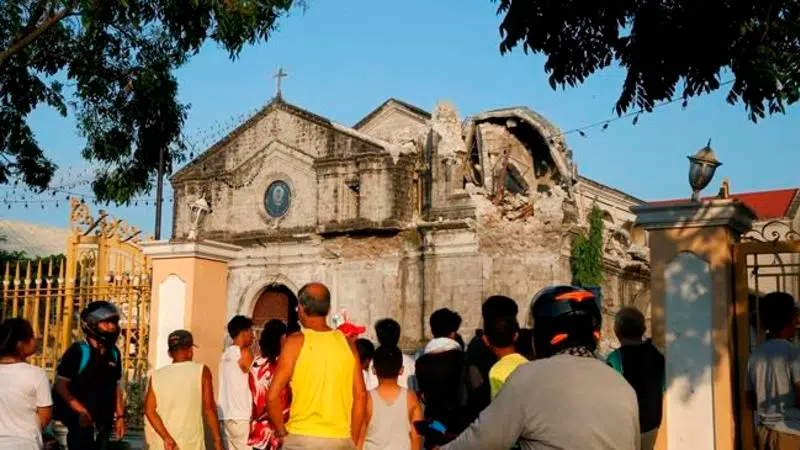
Powerful quake hits Philippines, day after deadly temblor
PORAC, Philippines — A new powerful earthquake hit the central Philippines on Tuesday, a day after a magnitude 6.1 quake rattled the country’s north and left at least 16 people dead, including in a collapsed supermarket, where rescuers scrambled to find survivors.
The U.S. Geological Survey put the magnitude of Tuesday’s quake at 6.4, while the local seismology agency said it was 6.5. The quake was centred near San Julian town in Eastern Samar province and prompted residents to dash out of houses and office workers to scamper to safety.
There were no immediate reports of casualties or major damage from the new quake.
